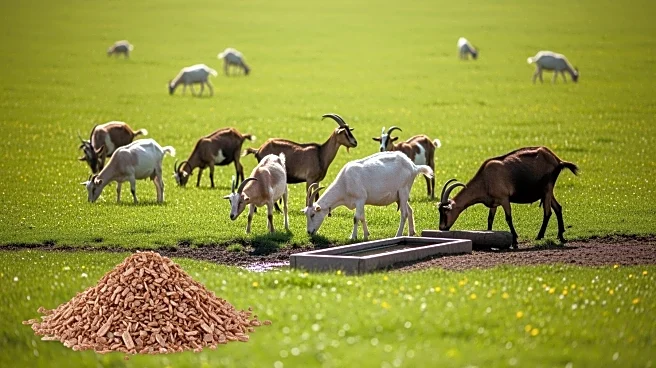What's Happening?
A study conducted on goats has investigated the effects of higher selenium concentrations in their diet under heat stress conditions. The research involved 28 female goats divided into four groups, each
receiving different selenium levels. The study aimed to assess selenium's impact on antioxidant status, cytokine levels, immunocompetence, and Hsp70 mRNA expression. Results indicated that selenium supplementation could influence physiological responses and immune function in goats, particularly under heat stress.
Why It's Important?
Understanding selenium's role in animal health is crucial for livestock management, especially in regions experiencing high temperatures. Selenium's impact on immune function and stress response can inform dietary strategies to enhance animal welfare and productivity. This research contributes to the broader field of animal physiology and nutrition, offering insights into how dietary supplements can mitigate environmental stressors.
What's Next?
Further studies are needed to explore the long-term effects of selenium supplementation on livestock health and productivity. Researchers may investigate the optimal selenium levels for different breeds and environmental conditions, potentially leading to improved dietary guidelines for farmers.
Beyond the Headlines
The study raises questions about the ethical considerations of animal testing and the need for sustainable livestock management practices. It also highlights the importance of interdisciplinary research in addressing complex challenges in agriculture and animal welfare.









